- Home
- Hammond Innes
Solomons Seal Page 11
Solomons Seal Read online
Page 11
I was alone except for the helmsman, everything so familiar, yet because of him it was different, the skin of his face a glossy black below the woolly halo of his hair and no means of communicating with him except in Pidgin. He was from Shortland Island. I checked it out on the Solomon Island Chart 214; it was a small island just south of Bougainville. ‘Are all the crew from the Solomons?’ I asked him.
He shook his head. ‘Sampela long Bougainville en Buka. Buka bilong Solomons wantaim. Nau Papua Niugini.’
I went back to the charts, found the one that gave the planned details of the Buka Passage, and with this and the Admiralty Pilot I began to familiarise myself with the approach. It was something I always did. I have an orderly mind, and I like to know what lies ahead of me before I make any sort of a passage. When I had finished with that, I turned back to the chart we were currently using, the Pacific Ocean 780, South West Sheet. It was old and faded, much used, with many pencil marks only half rubbed out in the area of the Solomons. Looking at it, I wasn’t surprised that Holland was worried about navigation. Sometime in the second night out we would be off Sandy Cape. We would have to leave the Australian coast there, just short of the Great Barrier Reef, and head north through the hazards that littered the chart between Queensland and New Caledonia. Variation between true and magnetic at that point was given as 10°E.
‘You know where Captain Holland is, please?’
I turned to find Shelvankar behind me, a message pad in his hand. ‘Isn’t he in his cabin?’
‘No, not in his cabin or the saloon. Maybe in the engine-room.’ He smiled. ‘It’s about the two extra vehicles we take on tomorrow night. It can wait.’ He put his thick-lensed glasses firmly into place, peering at the charts. ‘I have entered you as acting first officer now. On Captain Holland’s instructions. You are a good navigator?’
‘Why do you ask?’
‘He is damn nearly asleep on his feet when we come south to Sydney.’ His English was very precise, spoken with a high-pitched lilt that reminded me of a Welsh friend of mine who lived on an old Thames sailing barge up the Blackwater. ‘The sea is not my natural home, and when the Captain is tired and his mind is on other things—’ He gave a little shrug expressive of an unwilling fatalism. ‘I am relieved to see you checking the charts so conscientiously.’ He said it on a note of uncertainty, and I realised that he knew nothing about navigation and was afraid I might be trying to pretend I knew more than I did.
‘Don’t worry,’ I said. ‘I can navigate all right. It’s just that I don’t know these waters.’
‘So you find out from the chart and the Pilot.’ He nodded, smiling his relief. ‘That’s fine. That’s very fine, very sensible.’
‘What’s this about loading two extra vehicles?’ I asked, glancing down at the tank deck, where the four Haulpaks had been loaded aft in a tight huddle that left a clear space between the lead vehicle and the storm door.
He didn’t reply, and when I asked him what the message was, he said, ‘It’s nothing important. Just a change in the time the vehicles will be at the beach.’
‘At the beach? Are we loading direct off an open beach?’
He nodded, a shade reluctantly.
‘What about Customs?’
‘No Customs.’
I stared at him, conscious of his reluctance to talk, remembering Holland’s strange behaviour two nights back when I had walked unexpectedly into his wardroom. ‘Where is this beach?’ I pushed the chart towards him. ‘Show me.’
But he shook his head. ‘You ask Captain Holland. I do not know where it is.’ And he scurried out like a small spider that has weaved a bit of a web and then been frightened off it. He could have kept his mouth shut. But I realised that wasn’t in his nature. As a source of information he would always be unreliable, but at least he was a source, somebody I could talk to, and I guessed he had been with Holland quite a time, knew the family’s history.
Luke arrived in the wheelhouse a little before four, which was a good sign. He seemed to know nothing about the beach. And when I raised it with Holland in the saloon over tea, he refused to discuss it, his face blank. ‘Two trucks, that’s all. Nothing to do with you.’ And he began discussing navigation, confirming that we’d leave the Queensland coast at Sandy Cape, steering 05° Magnetic to pass between Saumarez Reef and Frederick Reef, both lit. I had already pencilled this probable course on the chart. ‘Where’s the beach?’ I asked him.
He hesitated, then said, ‘In the vicinity of Tin Can Bay, just south of Fraser Island.’ It was at the northern end of Fraser Island that Sandy Cape marked our point of departure for the Coral Sea.
He wouldn’t tell me anything more, sitting there sucking on an empty pipe, the creases in his forehead deepening and his mind far away. He was so tense, so uncommunicative that I was certain this was what had started him drinking that night. I went to my cabin and lay on the bunk, but I couldn’t sleep. There were some dog-eared paperbacks on the shelf above my head, including Conrad’s The Nigger of the Narcissus, but I couldn’t concentrate, which was probably just as well, since it wasn’t the ideal book to read in the circumstances.
I was on watch again at eight, and as Holland was handing over to me, Shelvankar came in. It was dark now, and I was concentrating on locating the stern light of the coaster ahead of us. I heard a muttered curse and turned to find Holland staring down at a message in his hands, his face gone pale and looking as though he couldn’t believe it. He was staring at it so long he could have read it through half a dozen times, and the little Indian standing close beside him as though enthralled by its dramatic potential.
Suddenly Holland turned to me. ‘Didn’t you tell me you’d met my sister?’
I nodded.
‘When was that? How long ago?’
‘About a month.’ And guessing what the message must be, I said, ‘She’s on her way to Sydney, is she?’
He didn’t answer that, staring at me, very tense. ‘How did you come to meet her? Was it about the house?’
‘Yes.’ And when I started to explain, he said, ‘I know all about the sale. But that was to provide for Tim, and she’d taken a job as a stewardess. I didn’t expect her out here for at least another month. Somebody must have given her money.’
He sounded so suspicious that instead of asking him about his brother, I found myself having to explain the value of the stamps. And all the time I was speaking he was staring at me, very pale, and still with that tenseness. ‘So you arranged for two thousand pounds to be put to her credit in a bank at Southampton. And you didn’t tell me.’ His voice was harsh, a little out of control. ‘Why are you here? Did she ask you to contact me?’ And without waiting for a reply, suddenly aware of the little Indian standing close beside him, avidly taking it all in, he said, ‘We can’t talk here. Hand the bridge over to Luke; then come to my cabin.’ And he left abruptly, the flimsy still clutched in his hand.
His cabin was next to the wheelhouse, and as soon as the second officer had taken over, I joined him. He was sitting on his bunk, staring fixedly at nothing. ‘Why didn’t you tell me?’ he muttered again, almost petulantly. ‘If I’d known she was going to fly out … ’ He looked up at me. ‘That night when you came on board, if I’d known then … you should have told me.’
‘I didn’t think it was the moment,’ I said.
He stared at me, finally nodding his head. ‘No, perhaps not. And you seem to have done the best you could for her. I’m grateful.’ He said it as a matter of form, nothing more. And then he was silent for a long time, lost in his own thoughts. The odd thing was he didn’t seem at all happy at her imminent arrival, his reaction one of alarm rather than pleasure.
‘When did you last see her?’ I asked.
‘What? Oh, let me see, it must be about five years ago now. I went over to England, to discuss things with my father.’ Remembering Mrs Clegg’s description of the father, I thought he probably took after him, and wondered what the mother had been like, the two of them, brother and sister,
so completely different. ‘She shouldn’t have come,’ he muttered to himself.
‘What did you expect her to do?’
He shook his head vaguely. ‘It’s no place for her,’ he mumbled, but I knew it wasn’t that. For some reason he was afraid of her. ‘I never thought she’d come, not suddenly like this. She talked about it, of course. She was always writing to me. Once a week, regularly.’
‘She’ll have told you then – about your brother. She says it’s sorcery.’
But he didn’t seem to take that seriously. ‘Ever since Mother was killed … ’ He shook his head, his mind on something else. ‘It’s Hans,’ he murmured. ‘It must be Hans.’ He looked up at me. ‘Hans Holland,’ he said. ‘We have a partnership arrangement. Perenna doesn’t approve.’
‘He’s a relative, is he?’
He nodded. ‘A bit removed, you might say.’
‘Was he in England two or three months ago?’
‘Yes. I think he’s still somewhere in Europe. He’s got big ideas, you see, and he’s looking for an ore carrier now.’
‘And he’s got red hair, has he?’
‘Yes, why?’
‘I think he visited them in Aldeburgh.’ It seemed to worry him, and I said, ‘Are you afraid your sister will ask awkward questions, about the partnership, I mean? You’re still a separate company, aren’t you?’
‘Yes.’ I had his attention now, his eyes on me, his fingers drumming nervously. ‘And the ship’s still mine.’ He sounded defensive. ‘I’ve had to borrow, of course, but we’re still solvent. It’s been a company since 1947, when my grandfather started it going after the war. He was running all sorts of craft then. Even when I took over, we still had some schooners. But it wasn’t until Hans began to undercut us that things became difficult. He started from scratch with two of those ugly little ramp-propelled lighters. RPLs. I had to make a deal with him then, and for that we needed something better than beat-up old coasters and the schooners.’
‘So you bought this vessel and named her after your sister?’
‘Yes.’
‘So why don’t you want her out here?’
I thought for a moment he wasn’t going to answer, but then he said, ‘Perenna and I … ’ He gave a little shrug. ‘The point is, whether it’s a house or a ship or a business, she wants to run it herself. The last I heard from her, she was at Southampton. That was before I left Buka. Now there’ll be letters waiting for me at Chinaman’s Quay.’ He smiled wearily. ‘If I’d been at Madehas instead of in Sydney, I’d have known all about you and those damned stamps.’ He sighed. ‘What the hell do I say to her? This’ – he tapped the message – ‘is an inflight from a Qantas aircraft en route from Singapore to Perth. She knows I’ve been in Sydney for engine overhaul, and she expects me to meet her at the airport. You think she’ll have enough cash with her to fly on to Bougainville?’
‘Why not tell her to meet you at that beach you’re putting into?’
‘No.’ He said it quite violently. ‘No, she can’t come on the ship.’
‘Why ever not?’
He stared at me, a puzzled frown and his eyes worried. ‘There’s no place for her, no proper accommodation. I can’t have a woman on board. Not Perenna. She’d – she’d be difficult.’ He had got to his feet. ‘I’ll tell her to contact the agents. That’s the best thing. They can arrange hotel accommodation and fix it for her to fly on to Kieta. Better still, she could stop off at Perth and stay with her aunt for a while. Yes, that would be best.’ And he nodded, smiling nervously as he pushed past me, pleased at having worked out a solution.
I went back to the bridge and took over from Luke again. The coaster was still there ahead of us, and nothing to do but follow her. The chart showed Kieta as the main port of Bougainville. I tried some star fixes then. The night was very clear, ideal for sextant practice, but after I had twice made a nonsense of my calculations, I gave it up. I just couldn’t concentrate, my mind on Perenna Holland instead of star charts and correction tables. I slid the starboard bridge wing door open and stood thinking about it in the cool night air. Well, I had done my best. I had tried to explain, and if he didn’t share his sister’s belief about sorcery, it was none of my business. But it still didn’t make sense expecting her to fly on to Kieta when she could so easily join ship at this beach we were putting in to. And she certainly wouldn’t stop with an aunt in Perth, not when she had come so far, working her passage until I’d got her the money to fly the last part.
I found myself gazing for’ard over the backs of the empty Haulpaks to the gap left for the two trucks we were going to load from a deserted beach in the small hours of tomorrow night. No Customs, the Indian had said. I wondered what those trucks would be filled with – drink, cigarettes, or was it something more serious? Drugs? Was that what he was afraid of, that she’d find out he was smuggling drugs?
There was a light on in the signals office, and suddenly my mind was made up. I went back to the chart table, wrote out my message and then took it to Shelvankar. He was alone, sitting at a portable typewriter, a cigarette burning in an old tobacco tin, the air thick with smoke. The place was littered with cardboard boxes, and as he glanced up at me, dark eyes magnified by the thick lenses of his glasses, he looked more like a storekeeper than a radio officer. I handed him the message I had written. ‘I want that sent right away.’ He read it, taking his time. Finally he put it down.
‘You know Miss Holland?’ he asked.
‘Yes.’
He shook his head uncertainly. ‘I will have to ask the Captain.’ He was getting to his feet, but I pushed him back into his chair. ‘Just send it,’ I told him.
‘But Mr Slingsby, I cannot do that. It is very difficult, you see. Captain Holland has already sent quite different instructions to his sister. She is to fly to Kieta.’
‘At his expense?’
‘No, he don’t say anything about who pays for the ticket. He just tells her he can’t meet her and if she doesn’t stay with her aunt at Perth she must fly on to Kieta.’
‘So, after coming all across the Pacific to see him, she’s fobbed off with an aunt or else she has to fly up to Townsville, get the Air Niugini flight to Port Moresby, then switch to another flight to Bougainville.’
‘Is none of my business, Mr Slingsby. If you do not agree, then you talk with Captain, please.’
‘I’ve already talked to him. He’s worried about that beach cargo.’ I hesitated, sure that this little man knew what it was, but not certain I could wring it out of him. ‘You keep the ship’s accounts, don’t you?’ I saw a flicker of uncertainty in his eyes. ‘Well, don’t you?’
‘Yes. But I don’t see—’
‘Then tell me this. Just how much are you in the red? You’ve been losing money—’
‘The Hollands, they run very good shipping line. Is very important for the islands.’
‘I’m not talking about the Hollands. I’m talking about this ship. It’s been losing money, hasn’t it?’
He was silent for a moment. Then he said, ‘There is a recession, you know. All over the world. In the Solomons and Papua New Guinea, too. Everyone is affected by it. But we were all right until we have to go to Sydney for engine repairs. This is very old ship now.’
‘And Holland’s in debt – to his partner?’
He didn’t have an answer to that, and because I had already come to the conclusion that Jona Holland was no businessman and relied entirely on this man for cargo arrangements and all the accounts, I said, ‘You know everything that goes on in this ship, Mr Shelvankar, so I’m sure you have discovered what my normal business is. I deal in land and big estates, which means I know all about figures and can read your books the way an accountant can. Do you want me to get Captain Holland to let me check through them?’
There was a shocked look in his eyes as he said quickly, ‘I assure you, Mr Slingsby, there is no need for that. Everything is accounted for very meticulously. I am a most meticulous person.’
I
knew I had him then. In total control of the business side, he didn’t have it in his nature not to fiddle something. ‘You send that message. Quote the flight number and ask for it to be delivered to Miss Holland on board the aircraft.’
For a moment he sat there staring up at me. Then he nodded. ‘Okay, I send it. But on your responsibility, you understand. I am not responsible.’
‘Just send it.’
Chapter Four
The last night watch is always a lonely one, but at 04.00 that morning I felt lonelier than usual. Tiredness may have had something to do with it. I had been on the bridge until past midnight and had had very little sleep. But that wasn’t the real reason. It was the strangeness of the ship, the crew all islanders who didn’t speak my language, and a coast I had never seen before. As I stood there on the bridge, the night dark and overcast, a black helmsman at the wheel and only the lights of that coaster ahead for company, the sense of isolation was very strong.
My eyelids gradually became heavy, almost gummed together with sleep, and to keep myself awake, I began thinking about Bougainville, what future the island might hold for me. Then my mind switched involuntarily to the trucks we were going to load off that beach and to Perenna Holland – wondering whether she had got my message in time, what she would do. Would she stay with her aunt in Perth or fly on to Sydney, hire a car and drive up to Tin Can Bay? I knew so little about her, I didn’t even know whether she had a licence and could drive. And if she did manage to locate us in the dark, what prospect was there for the development of any close relationship here on board, with her brother and his problems always present? Even my memory of her was now overshadowed by that vivid drunken picture he had given me of her wielding a cleaver in the blood-bespattered kitchen where their mother had been murdered. An outbreak of native hysteria, the lawyer had called it. But hysteria is a symptom; there had to be a cause for such an outbreak of violence.
Luke relieved me as dawn broke reluctantly under the overcast, the ship tramping steadily on over a leaden sea and the coast of New South Wales just visible, a dark line on the horizon to port. He had a reasonable command of English, and I stayed with him for a while. He was from a village at the eastern end of New Britain. He showed me the position of it on the Pacific Ocean chart. It was on the coast facing towards Hixon Bay and a high mountain called The Father. He was an important figure in his village, he said, but to retain his position he had to return at reasonable intervals to hold a feast and give presents. ‘I have two worlds, you see.’ He was smiling a little sadly. ‘They do not understand this world. They know I am a navigator and have a ship. That they can understand, for we have always lived partly by the sea. But they can only see that I am a navigator if I go there and prove to them I am rich. It is a very poor village.’ And he added quickly, ‘But the life there is good.’

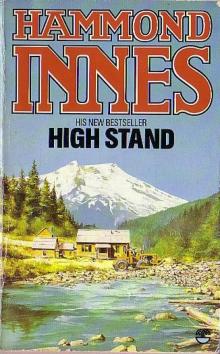 High Stand
High Stand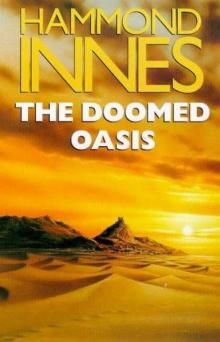 The Doomed Oasis
The Doomed Oasis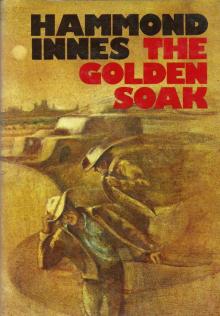 Golden Soak
Golden Soak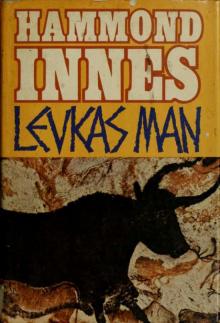 Levkas Man (Mystery)
Levkas Man (Mystery)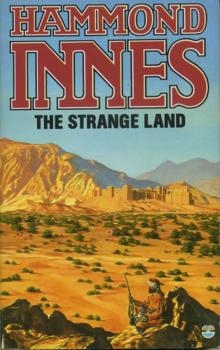 The Strange Land
The Strange Land Dead and Alive
Dead and Alive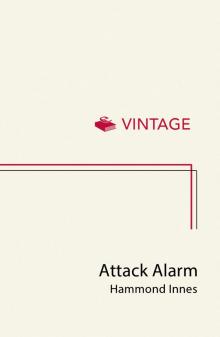 Attack Alarm
Attack Alarm The Strode Venturer
The Strode Venturer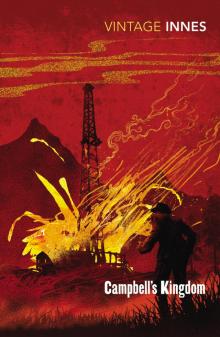 Campbell's Kingdom
Campbell's Kingdom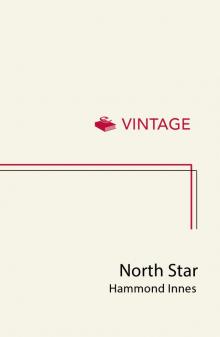 North Star
North Star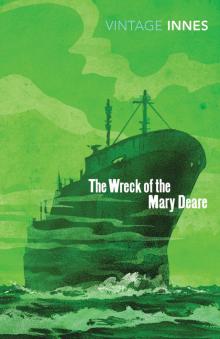 The Wreck of the Mary Deare
The Wreck of the Mary Deare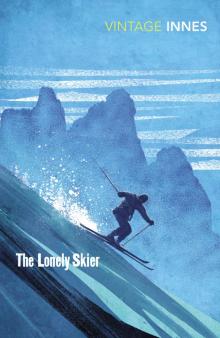 The Lonely Skier
The Lonely Skier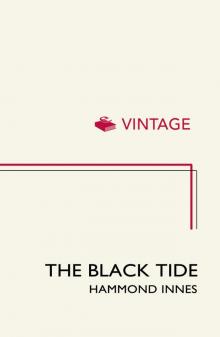 The Black Tide
The Black Tide The Trojan Horse
The Trojan Horse Medusa
Medusa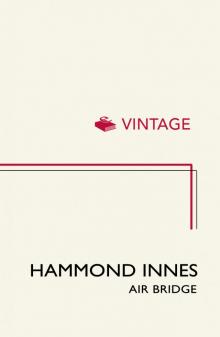 Air Bridge
Air Bridge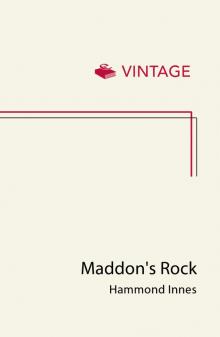 Maddon's Rock
Maddon's Rock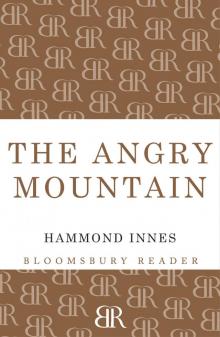 The Angry Mountain
The Angry Mountain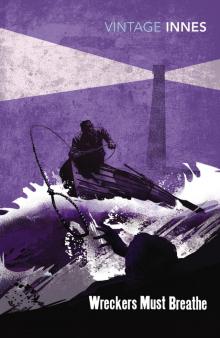 Wreckers Must Breathe
Wreckers Must Breathe Solomons Seal
Solomons Seal The White South
The White South